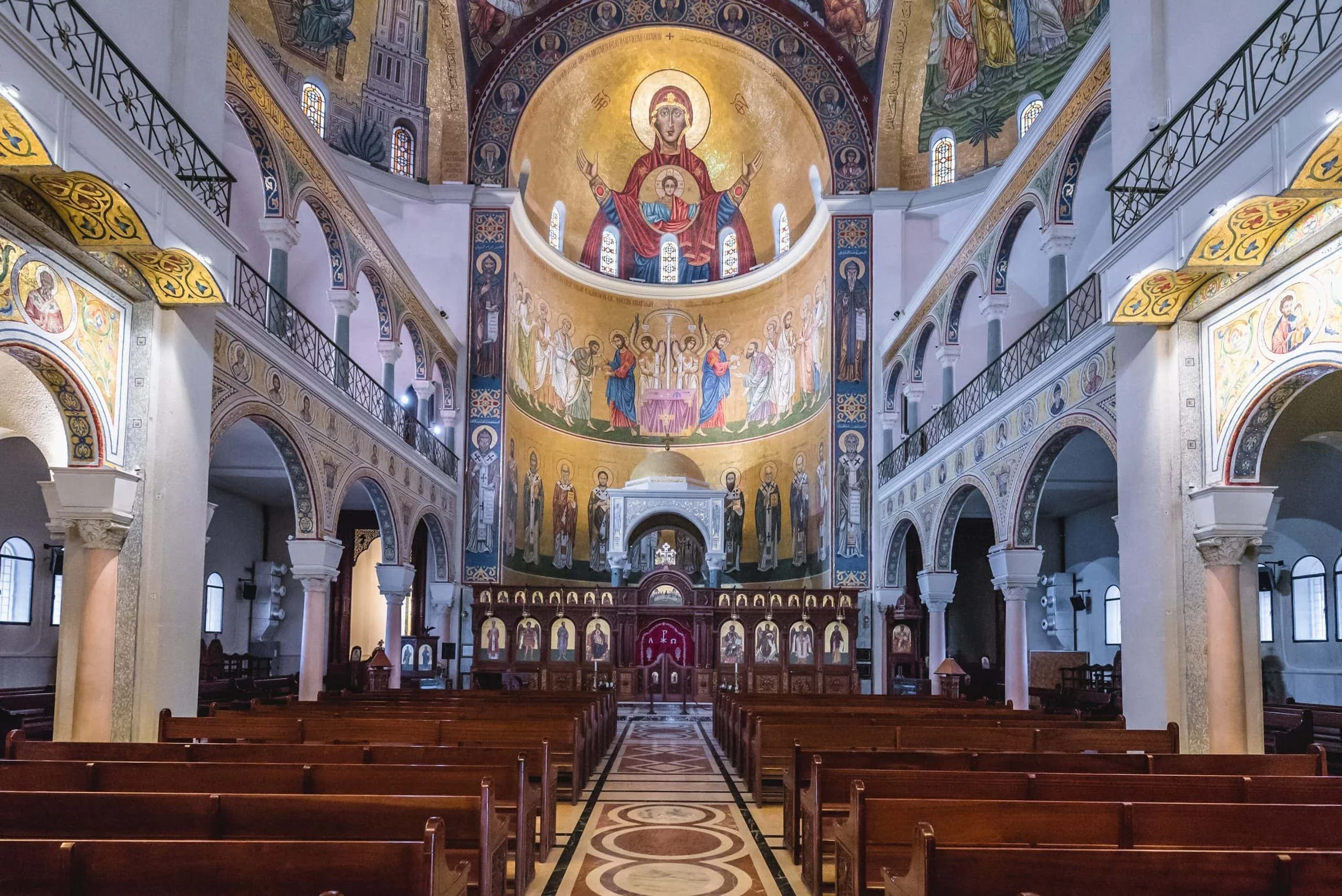
Christ is among us!
He is and always will be!
About Our Community
Serving the Dallas-Fort Worth area, we welcome you to come and share in the Divine Life with us through participation in the life of the Church: the Holy Mysteries, the Divine Liturgy, prayer, fasting, and the common life of loving service to one another.
Please come visit us! It is here that you will find orthodoxy of faith, beauty of worship, and a commitment to struggle for holiness among people just like you.
What is the Melkite Catholic Church?
The Melkite Catholic Church is an Eastern Catholic Church of the Byzantine rite, in full communion with the Holy See in Rome, as a part of the global Catholic Church.
We are perhaps the oldest continuous Christian Community in the world, tracing our lineage back to the Christians of the ancient Syrian cities of Antioch and Damascus.
Divine Services Schedule
Our community meets weekly on Sundays at:
(6900 Denton Highway, Watauga, TX 76148)
Morning Prayer & Mystery of Repentance
Sunday, 9:30 AM
Divine Liturgy
Sunday, 10:30 AM
On all other days,
Vespers & Mystery of Repentance
Wednesday, 7:00 PM
Great Vespers
Saturday, 5:15 PM
Divine Liturgy
On Major Feasts, 7:00 PM
All the treasures of both the Latin and Eastern Churches belong equally to all Catholics – all make up the patrimony of the Universal Church, a gift God has given to all His children. By appreciating the beauty and complementarity of all the various traditions, one actually gains a better appreciation of the unique contribution and identity of his own.
☩ Bishop Emeritus John Elya of Blessed Memory
What should I expect when I visit?
-
Yes! We would love to have you join us for worship at any of our services. If you are concerned about your Sunday obligation, rest assured the Divine Liturgy will fulfill it.
-
All of the services are in English.
-
Roman Catholics who have received First Communion, and are not impeded by unrepented and unconfessed sins may approach the Holy Eucharist. Additionally, Canon 671 of the Code of Canons for the Eastern Churches states: Catholic ministers licitly administer the sacraments of penance, the Eucharist and anointing of the sick to Christian faithful of Eastern Churches, who do not have full communion with the Catholic Church, if they ask for them on their own and are properly disposed. This holds also for the Christian faithful of other Churches, who according to the judgment of the Apostolic See, are in the same condition as the Eastern Churches as far as the sacraments are concerned.
-
Approach the priest with your hands crossed upon your breast, tilt your head back, and open your mouth without extending your tongue. You do not say amen.
-
We continue the ancient Church tradition of standing while praying, especially on Sundays.
“There are many other observances in the Church which, though due to tradition, have acquired the authority of the written law, as, for instance, the practice of not praying on bended knees on Sunday.” - St. Jerome, 330AD
”Since there are some communities that still bend their knees on the Lord's Day and on the days of Pentecost, this Holy Council decrees that the common prayers (i.e., at Liturgy) are to be rendered to God standing.” - Canon 20 of the First Ecumenical Council of Nicaea, 325AD
”On the first day of the week we stand when we pray. The reason is that on the day of Resurrection, by standing at prayer, we remind ourselves of the grace we have received.” - St. Basil the GreatThe elderly, the pregnant, and the infirm are welcome to sit as they deem necessary.
-
The blessed bread, called antidoron, is what remains from the preparation of the Holy Eucharist. It is not the Eucharist, but is still blessed and therefore given to those who participate in the Divine Liturgy.
All are welcome to come forward at the end of Divine Liturgy to receive a blessing and the antidoron.
When we come forward to receive the antidoron, we extend our hands right palm crossed over the left. We kiss the hand of the priest who places the antidoron in our hands.
-
After the Divine Liturgy on Sunday, the community gathers for a communal meal. This practice dates back to the early Christian Church and signifies the unity and fellowship among the faithful. Guests are not expected to bring anything to the agape meal. Please come join us in celebration without reservation, and let us serve you with joy and hospitality!
Sign up to get our Email Notifications!
The DFW Melkite Catholic Community uses 🐑 Flocknote for all communications.





